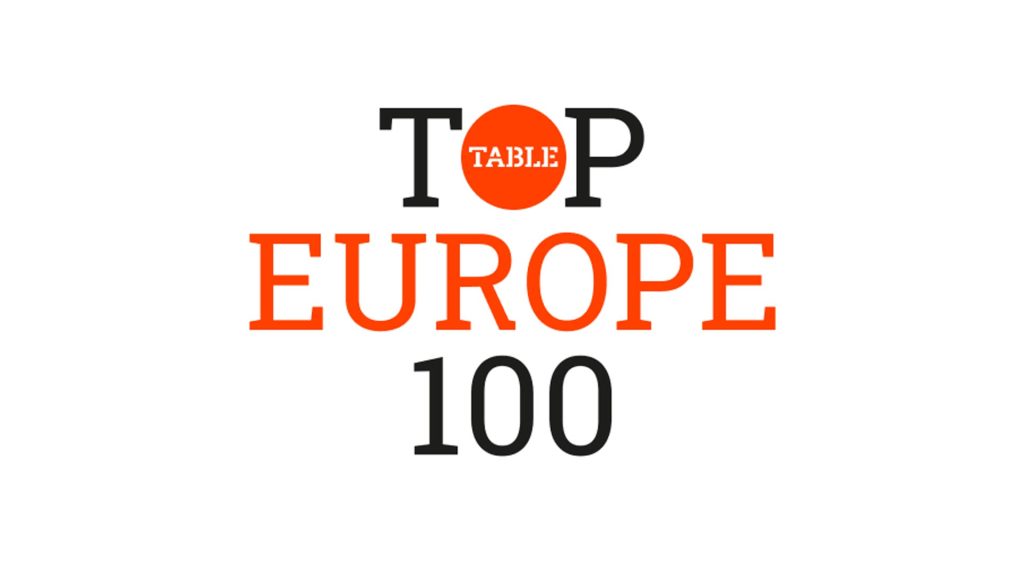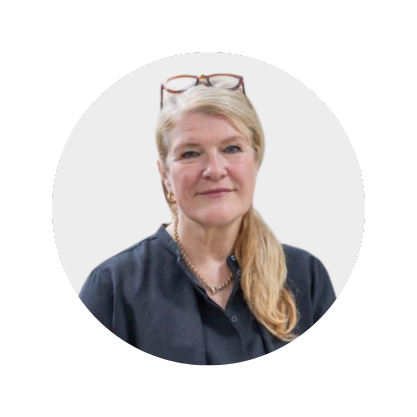The European elections are less than three weeks away. However, not much has been seen of the top candidates and their election campaigns so far. This is now set to change: with a televised debate on Thursday afternoon. It will be hosted by the European Broadcast Union (EBU) in the Parliament building in Brussels – and has already caused frustration in advance. In Germany, the debate will only be broadcast on Phoenix, which severely limits the audience.
The EBU is best known as the organizer of the Eurovision Song Contest. However, there was trouble at the last ESC in Malmö because the display of the European flag was restricted. Following a complaint from the EU Commission, however, it was said that it had been a misunderstanding.
There is also trouble now because only five leading European politicians are taking part in the televised debate. Representatives of the right-wing ID group and the right-wing conservative ECR are absent. Critics say that this inadmissibly narrows the spectrum of opinion and the debate loses its appeal.
The EBU counters this: The selection process had been agreed upon with parliament, and ID and EKR had of course also been invited. However, as these parties did not nominate lead candidates, they excluded themselves from the TV debate. The Greens, who are running with two top candidates, had nominated Terry Reintke – and were therefore allowed to take part.
Reintke will be up against EU Commission President Ursula von der Leyen (EPP), EU Commissioner Nicolas Schmit (S&D) as well as Walter Baier (European Left) and Sandro Gozi (Renew Europe) from 3 p.m. today. The debate will be held in English. If you do not have Phoenix, you can tune in via EBS or the Parliament website.
I wish you a good day.

Marine Le Pen, leader of the Rassemblement National (RN) parliamentary group in the French National Assembly, made the separation from the AfD perfect with a radio interview on Wednesday morning. “It’s time to make the break”, she said on Europe 1, adding that the AfD was rushing from provocation to provocation. The RN had initially distanced itself, but now the party had to act. She said of the AfD that it is a “movement that is not led and is obviously under the influence of radical groups”.
The RN is terminating the AfD’s group membership in the European Parliament for the next parliamentary term. And received support for this from Matteo Salvini’s Lega (Italy) and Tomio Okamur’s SPD (Czech Republic): Both ID member parties joined the demand to no longer sit in a parliamentary group with the AfD in the new mandate.
The AfD MEPs have become increasingly radicalized in Strasbourg. From 2014, they initially belonged to the conservative ECR group, but were then kicked out. In the last parliamentary term, they joined the radical right-wing ID Group, where the RN sets the tone and the Lega and the PVV of Dutchman Geert Wilders are represented.
The AfD is now too right-wing for the far-right ID parliamentary group: after the European elections, the future AfD MEPs – up to 15 according to the polls – are likely to find themselves without parliamentary group status in the independents. Just like NPD MEP Udo Voigt did from 2014 to 2019.
Marine Le Pen’s break with the AfD follows her script to win the 2027 presidential elections in France at the fourth attempt and enter the Élysée. To achieve this, she started to shed her far-right image early on. She forced her father and party founder Jean-Marie Le Pen, who was openly anti-Semitic, out of the party in the middle of the last decade. She renamed the party, which used to be called the Front National (FN) and pursued a xenophobic course, the Rassemblement National.
She also gave up the chairmanship of the party in order to appear presidential in the 2022 presidential election. The now popular MEP Jordan Bardella, who is only 28 years old, has taken over. The RN has since repaid the loan of €9 million that Russia gave her for the campaign against Macron. As a result, she can no longer be accused of being a partisan of Putin and of listening to Moscow.
In Le Pen’s calculations, the European elections are the test for the presidential election in France. She wants to show that the RN has got rid of its “Eww image”. To do this, she is sending the message to voters: “Nobody has to be afraid of us.” While Le Pen was still propagating France’s withdrawal from the EU during the 2017 presidential election campaign in the TV duel against Emmanuel Macron, there is no sign of this today. Long before Giorgia Meloni from the post-fascist Fratelli d’Italia moved towards the center, Le Pen was pursuing a strategy of self-moderation in order to appeal to middle-class voters.
The AfD scandals about money from Moscow and Beijing, espionage, plans for mass deportation and the relativization of the Holocaust are just what she needs to distance herself from the AfD. She wants to get rid of the ball and chain. The trivializing statements made by AfD lead candidate Maximilian Krah about the SS were now the trigger for Marine Le Pen to break with the AfD. The RN is currently leading in the polls for the European elections with around 30% of the vote ahead of the Macron camp, which only has 15%.
Nicolai von Ondarza from the German Institute for International and Security Affairs (SWP) analyzes on X: “Le Pen is creating space for the parties on the right-wing spectrum by throwing the AfD out of the ID as the most radical party.” The researcher assumes that Le Pen is now trying to pull parties from the ECR into the ID group. It is even conceivable: “Le Pen could try to win over Meloni, Orbán and Wilders for a united large right-wing group and then without the AfD as the most radical party.”
However, he qualifies this: “Politically, the differences are still considerable, but the power potential would be there.” In Manuel Müller’s seat projection, the ECR would increase from 68 to 81 seats and the ID (albeit still with the AfD) from 59 to 83 seats. In total, the European Parliament will have 720 seats in the future.
Marine Le Pen’s break with the German AfD comes as no surprise. There have recently been two confrontations between the Rassemblement national and the AfD. After the Potsdam meeting of German right-wing radicals with the participation of AfD officials was exposed as having plans to deport millions of people from Germany, the RN already distanced itself from the AfD and called the AfD party leadership to report to Paris. That was in February.
Even then, the RN threatened to terminate cooperation with the ID group in the European Parliament. AfD co-leader Alice Weidel traveled to Paris and also wrote a letter of clarification. However, even the letter did not help to resolve the dispute.
In April, there was a second scandal between the right-wing parties from Germany and France: In a written question to the German government, the AfD in the Bundestag questioned whether the Comoros island of Moyotte belonged to France. During a visit to the overseas department, Le Pen barked in the direction of the AfD that the AfD should “rather take care of Germany’s problems”. The inhabitants of the island had already voted three times to become part of France. At the time, Le Pen announced that she would “give the AfD members a few lessons in geopolitics”.
Tariffs of 25 percent on cars with an engine displacement of more than 2.5 liters: China joins the global tariff arms race. Liu Bin’s proposal in an interview with the Communist Party-affiliated newspaper Global Times can be interpreted as a threat. After all, the chief expert at China’s state automotive research institute, the China Automotive Technology & Research Centre (CATARC), wields considerable influence over China’s automotive strategy. He advises the government on industry, subsidy and tax issues and has contributed to the development plan for the new energy vehicle industry (2021-2035).
In the interview, Liu Bin used environmental concerns as a pretext: The 250,000 large engine cars imported to China would cause above-average emissions and thus hinder the green transformation. However, he also referred to import restrictions on Chinese EVs, which he said “violate market economy principles and WTO rules.” The tariff threat is a response to the punitive tariffs of 100 percent on Chinese EVs in the US and possible EU anti-dumping tariffs. And it is designed to hit the country considered a shaky variable when it comes to EU tariffs: Germany.
The German Association of the Automotive Industry (VDA) is highly critical of the EU’s anti-subsidy proceedings. “An escalation of trade conflicts would affect the German automotive industry in particular,” the VDA wrote in response to a question from Table.Briefings. “German manufacturers export around 87,700 cars from the USA to China and around 216,300 cars from Germany to China.”
Numerous premium vehicles from Mercedes-Benz, Audi and BMW could fall under the new regulation. Although the companies operate plants in China, high-powered saloons or SUVs are usually imported and not produced in the People’s Republic. For example, the Mercedes-Benz S-Class, Audi A8 or BMW 7 Series. Cars from Porsche are even imported exclusively. “This is one of the reasons why the German government is so firmly opposed to protective tariffs on Chinese products,” says Beatrix Keim, Director of Business Development & China Projects at CAR, the Centre Automotive Research.
But not only German brands would be affected. “The regulation would, of course, also apply to Stellantis, with the Maserati and Ferrari brands as luxury vehicles that are popular in China,” says CAR expert Keim. “As well as for PSA with the DS.” Volvo’s high-powered models could also be affected, even though it is owned by the Chinese group Geely, says Keim. “The question is to what extent Volvo would be treated separately here, due to the ownership structure.”
The details of the possible measures are also important. “If tariffs are imposed on components such as engines, for example, this could also affect the supplier industry or joint ventures, which do not always achieve a local content ratio of 100 percent for all models.”
Currently, China’s car import tariffs are already at 15 percent. The 25 percent rule would mean an increase of 10 percentage points. However, cars with a purchase price of over 130,000 euros are already subject to a ten percent higher tax rate in China. Nevertheless, higher prices could reinforce the already cautious consumer behavior.
Due to the poor economic situation, Chinese consumers are cautious and the savings rate is exceptionally high. Although customers who buy luxury vehicles tend to be wealthy, tariffs could undoubtedly hurt sales if manufacturers pass the surcharge on to customers. If they do not, their margins will shrink.
Even if they are indirect, the threats from China are falling on fertile ground in Europe. After all, the automotive industry does not think much of the EU’s tariff plans – it fears retaliatory measures. In an interview with the news agency Reuters on Wednesday, Stellantis CEO Carlos Tavares called tariffs a “major trap.” He said they would not prevent Western car manufacturers from adapting to the Chinese competition, but would merely drive up inflation. At the Annual General Meeting on 15 April, BMW CEO Oliver Zipse said protectionism would set a spiral in motion: tariffs lead to new tariffs.
When asked by Table.Briefings, the German premium manufacturers declined to comment on the new tariff proposals from China, saying they did not want to participate in “speculation.” Meanwhile, the EU is unlikely to change course, even despite Germany’s insistence. As trade falls under the exclusive competence of the EU, the countries can only stop Brussels with a qualified majority, meaning that at least 55 percent of the member states, representing at least 65 percent of the European population, would have to demand this change. And that is not in sight.
Sept. 27-29, 2024; Lisbon (Portugal)
DMG Events, Conference Lisbon Energy Summit & Exhibition
As one of the leading events on new energies and technological innoviation, the summit will gather policymakers, project developers, investors, and innovators to share insights into transitioning the EU’s energy system to one based on renewables. INFO & REGISTRATION
May 28, 2024; 9:30 a.m., Brussels (Belgium)/online
CESI, Discussion CESI EU elections debate: Your voice, your Europe – The time is now
As the European elections approach, the European Confederation of Independent Trade Unions (CESI) seeks to emphasize the importance of participation in the democratic process and highlight the impact of the European Union on citizens and workers. INFO & REGISTRATION
May 28, 2024; 3-4:30 p.m., online
Hydrogen Europe, Conference Strengthening the Leadership for European Electrolyser Manufacturing
This event will delve into the multifaceted challenges hindering the scaling up of Europe’s electrolyser industry addressing geopolitical shifts, technological limitations and supply chain risks, and will explore stratgies to ensure a continued European leadership in the global clear technology sector. INFO & REGISTRATION
May 28, 2024; 7-8:30 p.m., Berlin (Germany)
Hertie School, Panel Discussion Towards Enlargement: Navigating challenges and paths for reform
The Albanian Minister of Foreign Affairs Igli Hasani will join a debate on the complexities and geopolitical considerations surrounding EU enlargement, the prospect of institutional changes and Albania’s journey towards European integration. INFO & REGISTRATION
A new parliament will be elected in the UK on July 4. This was announced by Prime Minister Rishi Sunak in London on Wednesday. “Now is the time for Britain to decide its future”, said Sunak. He is therefore calling the elections earlier than was widely expected. Many observers consider this to be a risky maneuver, as Sunak’s Conservative Party is around 20 percentage points behind the Labour opposition in the polls. After 14 years in government, the Conservative Party is thus threatened with an end.
The Tories suffered a heavy defeat in the local elections at the beginning of May. Labor won a parliamentary seat in the north of England and control of numerous city councils. This increased the pressure on Sunak to bring forward the general election expected in the second half of the year. A new parliament must be elected by January 2025. rtr
German Economy Minister Robert Habeck wants to ensure that new regulations boost demand for green raw materials from the steel, cement and chemical industries. On Wednesday, he presented a corresponding concept paper from his ministry. It states that so far, support has mainly been offered on the supply side, for example, with Carbon Contracts for Difference and subsidies for the restructuring of the steel industry. “With the green lead markets, we are now also looking at the demand side,” Habeck said. “Because without buyers, even the best product is useless.”
As a first step, the concept announces the development of labels to identify raw materials that cause comparatively low carbon emissions during production. The “Low Emission Steel Standard” recently presented by the steel industry serves as a template. Based on these labels, binding specifications for increasing the share of green raw materials are to be set at the EU level as part of the new EU Ecodesign, which all manufacturers and importers must comply with. However, this is expected to take several years; according to information from the BMWK, a corresponding regulation for steel is planned for 2026/27.
A second possible use for these new labels could be implemented more quickly, but would be non-binding: The German public procurement law is expected to be amended next year to allow public clients to stipulate a certain percentage of steel or cement used in tenders. In the construction sector alone, public sector contracts are responsible for around 28 percent of greenhouse gas emissions. However, such quotas will not be mandatory; it is therefore unclear to what extent federal, state and local authorities will use the new option considering their tight budgets.
Tilmann von Berlepsch, spokesperson for climate-neutral industry at the NGO Germanwatch, believes this approach is insufficient. He told Table.Briefings that the German government should also impose green procurement criteria for federal states and local authorities. However, he said that it is crucial that the federal government supports them in this “and does not pass on another climate protection task to the municipalities without additional funding.” On the other hand, Martin Theuringer, Managing Director of the German Steel Association, praised the concept. He explained that public procurement must now be geared towards carbon-reduced products and processes and incentives must be created for the purchase of low-emission products. av/mkr
In view of increasing bottlenecks in the power grid, Europe’s leading energy association is calling for the end of treating all connection requests equally. In a new report published on Wednesday, Eurelectric called on the EU to allow member states to set priorities for connections based on societal benefits. To this end, European legislators should amend the electricity market regulation, which currently stipulates that customers should not be discriminated against.
As a model, Eurelectric cites a new regulation in the Netherlands. Starting in October, Dutch grid operators are to follow a state-defined order set by the regulatory authority ACM. Batteries and other systems that alleviate bottlenecks will be the first to be granted grid access. The second category includes security authorities and the third category includes critical infrastructure such as drinking water supplies and schools – as well as new residential buildings, as a spokesperson explained on request.
ACM already issued regulations for installing heat pumps and charging facilities in existing buildings in 2023. The authority felt compelled to impose a maximum waiting period of one year on grid operators for households wishing to retrofit such systems.
Germany wants to take a different approach. Last November, the Federal Network Agency stipulated that grid operators may no longer refuse connections, even on the grounds of possible bottlenecks. In return, users will have to accept temporary power restrictions, for example, when charging electric cars. However, according to the BNetzA, this requires the digitalization of the grids.
Eurelectric now also calls for incentives so that grid users no longer demand oversized connections they do not use to their full capacity. However, Eurelectric’s core demand is for the EU states to double their annual investment in distribution grids from 33 to 67 billion euros by 2050. ber
In a survey conducted by the Federation of German Consumer Organizations (vzbv), an overwhelming majority of Germans surveyed (95%) want consumers to be better protected against financial losses caused by online bank fraud in the coming legislative period. This is the result of a representative Forsa survey with 1,500 participants, which is exclusively available to Table.Briefings in advance. Respondents were asked about their approval of various consumer policy demands made by the Federation of German Consumer Organizations.
According to the vzbv, payment service providers already have to pay for direct debits that have not been authenticated by customers. However, the consumer advocates see a regulatory gap here. In practice, banks repeatedly circumvented this obligation by claiming that those affected had acted negligently.
Consumers ranked the demand to restructure the electricity market in such a way that consumers benefit financially in second place. In the survey, 89% of respondents said that this was “very important” or “fairly important” to them. “Low generation prices for electricity from renewable energies must reach consumers and excess profits for companies must be prevented,” demands the Federation of German Consumer Organizations.
Over the past year and a half, the reform of the European electricity market has shown how laborious this undertaking is. What has remained is the possibility of limiting electricity prices by the state in times of crisis.
However, the demand to prevent companies from making excess profits is putting the German government under particular pressure. The European emergency regulation on the absorption of excess profits has now expired. However, Germany will have to impose an upper limit on the revenues from state-subsidized renewable energies in particular. There is resistance to this from the Greens and the renewables sector.
The Federation of German Consumer Organizations has drawn up a total of 24 European policy demands for the coming legislative period . “Many political decisions that directly affect people’s everyday lives are made at European level,” says vzbv board member Ramona Pop. She is convinced: “Europe can do even more for consumers.“ lei/ber
Around 100 well-known personalities from politics, culture and science are making a joint appeal to go to the polls – and vote for democratic parties. They include the President of the Central Council of Jews, Josef Schuster, the actress Maria Furtwängler, the climate economist Ottmar Edenhofer and the former President of the Federal Constitutional Court, Andreas Voßkuhle.
“Our democracy is threatened both from within and from without“, reads the appeal, which is now available online. There are important elections coming up in many municipalities, on June 9 for the European Parliament and in September in three federal states. There, the question arises as to whether “democracy-threatening actors in municipalities and federal states could gain government power and endanger European unification”.
The appeal will be distributed via advertisements on social media and media websites. The costs will be borne by the signatories themselves. The initiative was launched by a group of four in the wake of the mass demonstrations against right-wing extremism in the spring. They include Jochen Flasbarth, State Secretary at the Federal Ministry for Economic Cooperation and Development, and his colleague Dirk Meyer, as well as Dirk Messner, President of the Federal Environment Agency, and Johannes Vogel, Director of the Berlin Natural History Museum.
A number of federal and state politicians from various parties have now signed the appeal. These include the Minister President of Rhineland-Palatinate, Malu Dreyer (SPD), FDP Secretary General Bijan Djir-Sarai, Parliamentary State Secretary at the BMWK, Franziska Brantner (Greens), and former Minister President Armin Laschet (CDU). tho
Euromat, a voting aid for the European elections, is going online. It will go live just in time for the debate between the leading candidates in the European Parliament this Thursday afternoon. Table.Briefings is the exclusive media partner of the service.
Euromat allows users to answer questions on European politics (“agree”, “disagree” or “neutral”). They are then given an overview of the extent to which their answers match the positions of the European parties. Voting aids such as the Wahl-O-Mat in Germany or the Dutch StemWiJzer deal with national parties. The Euromat, on the other hand, looks at European party families such as the EPP, S&D, Renew and Greens/EFA, which make up the political groups in the European Parliament.
Political scientist and blog author Manuel Müller was instrumental in developing Euromat. Müller says: “The European parties have an important influence on opinion-forming at European level.” As no national party in the European Parliament can be successful without its sister parties from other member states, European political persuasion often begins in the parliamentary group.
The Euromat is initially available in German, English, French and Finnish. Further languages are being worked on. This year, it is a joint project of the associations Pulse of Europe and Polis 180 as well as the blog “Der (europäische) Föderalist” (The (European) Federalist). It follows on from previous Euromat editions on the 2017 and 2021 federal elections and builds on their experiences.
Pulse of Europe is a citizens’ initiative, Polis 180 is a Berlin grassroots think tank on foreign and European policy. “Der (europäische) Föderalist” is a blog by political scientist Müller, who regularly publishes his seat projection “Wenn am Sonntag Europawahl wäre…” on Table.Briefings. mgr

The days of talking about donor and recipient countries in the context of international cooperation are gone. Effective climate and transformation partnerships with developing and emerging economies are crucial for meeting global climate action targets. They also help to strengthen Europe’s own security and competitiveness, diversify its supply chains and secure access to energy and raw materials.
Given the current geopolitical landscape, the EU and its member states need to reorient and improve the communication of their offer to international partners, specifically developing and emerging countries to gain local buy-in, especially in the backdrop of competing offers from other emerging economic powers seeking to expand their global influence.
As part of the “Team Europe” approach, the EU and its member states have set out to “make their joint external action greater than the sum of its parts” by pooling resources and effectively coordinating their efforts. However, a recent study by NewClimate Institute shows that the partnerships offered by the EU and its member states are poorly focussed and insufficiently coordinated – in line with the saying “everything, everywhere, all at once.”
While China makes offers that countries can hardly refuse, the EU’s partnership offer is often complex, fragmented and difficult to understand. In recent years, the EU has launched various types of partnerships that can be loosely characterized as climate partnerships.
Global Gateway, Europe’s geopolitical framework to support infrastructure development in emerging and developing countries, focuses on green and digital transformation. Global Gateway is complemented by a number of other initiatives such as Green Partnerships, Green Alliances, Strategic Partnerships on Critical Raw Materials and plurilateral programs such as Just Energy Transition Partnerships (JETPs).
In addition to these EU-led partnerships, EU member states also maintain a wide range of bilateral climate and development partnerships with third countries. Additionally, there are several climate partnerships with developed countries.
In view of this flood of partnership models, it is difficult to recognize a clear focus. A lack of geographical prioritization also makes it challenging to set clear priorities and develop coherent strategies. There are Global Gateway projects in the area of climate and energy in more than 60 countries, although the projects differ significantly in terms of their scope and investments. Given limited resources in key EU institutions, both in Brussels and on the ground in partner countries, effective implementation of these partnerships in so many countries is a massive challenge.
Team Europe – consisting of EU institutions, its member states, diplomatic services and financial institutions – should therefore focus its actions abroad on a clear, joint and region-specific strategy in order to utilize synergies and avoid duplication. Germany and other member states should orientate their bilateral efforts even more strategically towards a joint approach within the framework of Team Europe.
Germany should therefore define strategic cooperation with the EU within the framework of partnerships as an important building block in the implementation of its strategy on climate foreign policy. This is not only important for the efficient use of limited public resources, but also to convey a unified image to the rest of the world and strengthen Europe’s role in the necessary global transformation.
The upcoming EU elections offer the opportunity to send new political signals and to implement the Team Europe approach more consistently in practice by setting up partnerships that are mutually beneficial, effective, and ambitious. This is not only important for global decarbonization efforts, but also to secure and strengthen Europe’s competitiveness in the long term. Only a coordinated and focused approach will ensure that Europe does not fall behind in global competition and at the same time maximizes its contribution to global climate action and effectively supports the sustainable development ambitions of partner countries.


Ulrich Hermann – Chairman of the Board of Trustees of the Foundation International Charlemagne Prize of Aachen
Ulrich Hermann has been Chairman of the Board of Trustees of the International Charlemagne Prize Foundation of Aachen for seven years. The foundation’s work focuses on the political, economic, cultural and social aspects of the European integration process. Hermann has decades of experience as an industry executive with a strategic focus on digitalization. His entrepreneurial work has always been at the center of disruptive change. He is currently Managing General Partner at Einstein Industries Ventures and a minority shareholder and member of the Board of Directors at electric car manufacturer Next.e.GO Mobile.

Navid Kermani – Author
Kermani is one of Germany’s leading intellectuals. He tirelessly publishes non-fiction books and novels, gives keynote speeches and writes for the weekly newspaper “Die Zeit”. In 2015, he received the Peace Prize of the German Book Trade. In 2017, he was in discussion for the office of Federal President. In his works, the habilitated orientalist repeatedly deals with Christian-Islamic rapprochement and comments on current European debates. He once wrote: “If you want to know how much the entity called the European Union is worth, you have to go to where it ends.”

Clara Föller – Federal Chairperson Young European Federalists
Her main job is at the Deutsche Gesellschaft für Internationale Zusammenarbeit (GIZ). In an honorary capacity, she is the national chairwoman of the Young European Federalists. A feminist who is committed to raising awareness of the merits of female politicians for European integration. She is also campaigning for participation in the European elections in June with the #EurHope campaign.

Jakob Hanke Vela – Author Brussels Playbook, Politico
The journalist is the main author of Politico’s “Brussels Playbook”, a kind of local newspaper for Brussels’ European quarter. He is often well informed and analyzes with a sharp pen. Jakob Hanke Vela also personifies Europe quite well – as the son of a Spanish mother and a German father who worked as a correspondent in Paris for a long time.
Frauke Muth – Head of Youth for Europe
Education, youth and sport are the core areas of the joint European program Erasmus+, which is implemented by the national agency Youth for Europe. Frauke Muth took over the management in 2022. The political science graduate previously worked for Innovation Norway, as well as in Romania, England and Bulgaria. She aims to strengthen European cohesion with her youth policy programs.

Damian Boeselager – Co-founder and lead candidate of Volt Europe
Damian Boeselager is currently the only representative of the pan-European Volt party in the European Parliament. The 36-year-old began his career at McKinsey, where he managed projects in the social and public sector, including for the Federal Office for Migration and Refugees. Since 2019, he has worked on 25 legislative proposals, six of them as lead rapporteur. His aim is to strengthen Europe and renew the European Parliament: it should have the power to initiate, amend and approve legislation.

Bettina Brokemper – Managing Director Heimatfilm
The film producer has been shaping the idea of European co-productions for more than 20 years: First with the Danish company Zentropa, and since 2003 with her own company Heimatfilm. In 2008, she was awarded the European co-producer prize “Prix Eurimages” for her work. Her productions have screened in Cannes, won the Golden Bear at the Berlinale and the German Film Prize. She is a board member of the European Film Academy. Last year, Hollywood Reporter named Brokemper one of the 40 most influential women in the international film industry.

René Moerland – Editor Euractiv
For 23 years, René Moerland was a journalist, foreign correspondent and later editor-in-chief at the Dutch newspaper “NRC Handelsblad”. After NRC’s Flemish parent company took over the Brussels-based online medium “Euractiv” in 2023, he became part of the integration team. On January 1, 2024, he moved to the position of publisher at “Euractiv”, which aims to play at the top of the EU bubble media market.

Hanna Veiler – President of the Jewish Student Union Germany
In the Jewish Student Union, the 26-year-old advocates for a positive connotation with Jewish identity, but since October 7, she has had to do a lot of support work for Jewish students under threat. She is also organized in the European umbrella organization of Jewish students. In 2024, she was named “Woman of Europe” by the European Movement Germany.

Hedwig Fijen – Director Manifesta
The Dutchwoman is the founding director of the European traveling biennial Manifesta, which changes its venue every two years. The first edition took place in Rotterdam in 1996, the most recent show in the Kosovan capital Pristina. Local artists are exhibited as well as international celebrities. Manifesta usually takes place in decentralized venues in the city.
The European elections are less than three weeks away. However, not much has been seen of the top candidates and their election campaigns so far. This is now set to change: with a televised debate on Thursday afternoon. It will be hosted by the European Broadcast Union (EBU) in the Parliament building in Brussels – and has already caused frustration in advance. In Germany, the debate will only be broadcast on Phoenix, which severely limits the audience.
The EBU is best known as the organizer of the Eurovision Song Contest. However, there was trouble at the last ESC in Malmö because the display of the European flag was restricted. Following a complaint from the EU Commission, however, it was said that it had been a misunderstanding.
There is also trouble now because only five leading European politicians are taking part in the televised debate. Representatives of the right-wing ID group and the right-wing conservative ECR are absent. Critics say that this inadmissibly narrows the spectrum of opinion and the debate loses its appeal.
The EBU counters this: The selection process had been agreed upon with parliament, and ID and EKR had of course also been invited. However, as these parties did not nominate lead candidates, they excluded themselves from the TV debate. The Greens, who are running with two top candidates, had nominated Terry Reintke – and were therefore allowed to take part.
Reintke will be up against EU Commission President Ursula von der Leyen (EPP), EU Commissioner Nicolas Schmit (S&D) as well as Walter Baier (European Left) and Sandro Gozi (Renew Europe) from 3 p.m. today. The debate will be held in English. If you do not have Phoenix, you can tune in via EBS or the Parliament website.
I wish you a good day.

Marine Le Pen, leader of the Rassemblement National (RN) parliamentary group in the French National Assembly, made the separation from the AfD perfect with a radio interview on Wednesday morning. “It’s time to make the break”, she said on Europe 1, adding that the AfD was rushing from provocation to provocation. The RN had initially distanced itself, but now the party had to act. She said of the AfD that it is a “movement that is not led and is obviously under the influence of radical groups”.
The RN is terminating the AfD’s group membership in the European Parliament for the next parliamentary term. And received support for this from Matteo Salvini’s Lega (Italy) and Tomio Okamur’s SPD (Czech Republic): Both ID member parties joined the demand to no longer sit in a parliamentary group with the AfD in the new mandate.
The AfD MEPs have become increasingly radicalized in Strasbourg. From 2014, they initially belonged to the conservative ECR group, but were then kicked out. In the last parliamentary term, they joined the radical right-wing ID Group, where the RN sets the tone and the Lega and the PVV of Dutchman Geert Wilders are represented.
The AfD is now too right-wing for the far-right ID parliamentary group: after the European elections, the future AfD MEPs – up to 15 according to the polls – are likely to find themselves without parliamentary group status in the independents. Just like NPD MEP Udo Voigt did from 2014 to 2019.
Marine Le Pen’s break with the AfD follows her script to win the 2027 presidential elections in France at the fourth attempt and enter the Élysée. To achieve this, she started to shed her far-right image early on. She forced her father and party founder Jean-Marie Le Pen, who was openly anti-Semitic, out of the party in the middle of the last decade. She renamed the party, which used to be called the Front National (FN) and pursued a xenophobic course, the Rassemblement National.
She also gave up the chairmanship of the party in order to appear presidential in the 2022 presidential election. The now popular MEP Jordan Bardella, who is only 28 years old, has taken over. The RN has since repaid the loan of €9 million that Russia gave her for the campaign against Macron. As a result, she can no longer be accused of being a partisan of Putin and of listening to Moscow.
In Le Pen’s calculations, the European elections are the test for the presidential election in France. She wants to show that the RN has got rid of its “Eww image”. To do this, she is sending the message to voters: “Nobody has to be afraid of us.” While Le Pen was still propagating France’s withdrawal from the EU during the 2017 presidential election campaign in the TV duel against Emmanuel Macron, there is no sign of this today. Long before Giorgia Meloni from the post-fascist Fratelli d’Italia moved towards the center, Le Pen was pursuing a strategy of self-moderation in order to appeal to middle-class voters.
The AfD scandals about money from Moscow and Beijing, espionage, plans for mass deportation and the relativization of the Holocaust are just what she needs to distance herself from the AfD. She wants to get rid of the ball and chain. The trivializing statements made by AfD lead candidate Maximilian Krah about the SS were now the trigger for Marine Le Pen to break with the AfD. The RN is currently leading in the polls for the European elections with around 30% of the vote ahead of the Macron camp, which only has 15%.
Nicolai von Ondarza from the German Institute for International and Security Affairs (SWP) analyzes on X: “Le Pen is creating space for the parties on the right-wing spectrum by throwing the AfD out of the ID as the most radical party.” The researcher assumes that Le Pen is now trying to pull parties from the ECR into the ID group. It is even conceivable: “Le Pen could try to win over Meloni, Orbán and Wilders for a united large right-wing group and then without the AfD as the most radical party.”
However, he qualifies this: “Politically, the differences are still considerable, but the power potential would be there.” In Manuel Müller’s seat projection, the ECR would increase from 68 to 81 seats and the ID (albeit still with the AfD) from 59 to 83 seats. In total, the European Parliament will have 720 seats in the future.
Marine Le Pen’s break with the German AfD comes as no surprise. There have recently been two confrontations between the Rassemblement national and the AfD. After the Potsdam meeting of German right-wing radicals with the participation of AfD officials was exposed as having plans to deport millions of people from Germany, the RN already distanced itself from the AfD and called the AfD party leadership to report to Paris. That was in February.
Even then, the RN threatened to terminate cooperation with the ID group in the European Parliament. AfD co-leader Alice Weidel traveled to Paris and also wrote a letter of clarification. However, even the letter did not help to resolve the dispute.
In April, there was a second scandal between the right-wing parties from Germany and France: In a written question to the German government, the AfD in the Bundestag questioned whether the Comoros island of Moyotte belonged to France. During a visit to the overseas department, Le Pen barked in the direction of the AfD that the AfD should “rather take care of Germany’s problems”. The inhabitants of the island had already voted three times to become part of France. At the time, Le Pen announced that she would “give the AfD members a few lessons in geopolitics”.
Tariffs of 25 percent on cars with an engine displacement of more than 2.5 liters: China joins the global tariff arms race. Liu Bin’s proposal in an interview with the Communist Party-affiliated newspaper Global Times can be interpreted as a threat. After all, the chief expert at China’s state automotive research institute, the China Automotive Technology & Research Centre (CATARC), wields considerable influence over China’s automotive strategy. He advises the government on industry, subsidy and tax issues and has contributed to the development plan for the new energy vehicle industry (2021-2035).
In the interview, Liu Bin used environmental concerns as a pretext: The 250,000 large engine cars imported to China would cause above-average emissions and thus hinder the green transformation. However, he also referred to import restrictions on Chinese EVs, which he said “violate market economy principles and WTO rules.” The tariff threat is a response to the punitive tariffs of 100 percent on Chinese EVs in the US and possible EU anti-dumping tariffs. And it is designed to hit the country considered a shaky variable when it comes to EU tariffs: Germany.
The German Association of the Automotive Industry (VDA) is highly critical of the EU’s anti-subsidy proceedings. “An escalation of trade conflicts would affect the German automotive industry in particular,” the VDA wrote in response to a question from Table.Briefings. “German manufacturers export around 87,700 cars from the USA to China and around 216,300 cars from Germany to China.”
Numerous premium vehicles from Mercedes-Benz, Audi and BMW could fall under the new regulation. Although the companies operate plants in China, high-powered saloons or SUVs are usually imported and not produced in the People’s Republic. For example, the Mercedes-Benz S-Class, Audi A8 or BMW 7 Series. Cars from Porsche are even imported exclusively. “This is one of the reasons why the German government is so firmly opposed to protective tariffs on Chinese products,” says Beatrix Keim, Director of Business Development & China Projects at CAR, the Centre Automotive Research.
But not only German brands would be affected. “The regulation would, of course, also apply to Stellantis, with the Maserati and Ferrari brands as luxury vehicles that are popular in China,” says CAR expert Keim. “As well as for PSA with the DS.” Volvo’s high-powered models could also be affected, even though it is owned by the Chinese group Geely, says Keim. “The question is to what extent Volvo would be treated separately here, due to the ownership structure.”
The details of the possible measures are also important. “If tariffs are imposed on components such as engines, for example, this could also affect the supplier industry or joint ventures, which do not always achieve a local content ratio of 100 percent for all models.”
Currently, China’s car import tariffs are already at 15 percent. The 25 percent rule would mean an increase of 10 percentage points. However, cars with a purchase price of over 130,000 euros are already subject to a ten percent higher tax rate in China. Nevertheless, higher prices could reinforce the already cautious consumer behavior.
Due to the poor economic situation, Chinese consumers are cautious and the savings rate is exceptionally high. Although customers who buy luxury vehicles tend to be wealthy, tariffs could undoubtedly hurt sales if manufacturers pass the surcharge on to customers. If they do not, their margins will shrink.
Even if they are indirect, the threats from China are falling on fertile ground in Europe. After all, the automotive industry does not think much of the EU’s tariff plans – it fears retaliatory measures. In an interview with the news agency Reuters on Wednesday, Stellantis CEO Carlos Tavares called tariffs a “major trap.” He said they would not prevent Western car manufacturers from adapting to the Chinese competition, but would merely drive up inflation. At the Annual General Meeting on 15 April, BMW CEO Oliver Zipse said protectionism would set a spiral in motion: tariffs lead to new tariffs.
When asked by Table.Briefings, the German premium manufacturers declined to comment on the new tariff proposals from China, saying they did not want to participate in “speculation.” Meanwhile, the EU is unlikely to change course, even despite Germany’s insistence. As trade falls under the exclusive competence of the EU, the countries can only stop Brussels with a qualified majority, meaning that at least 55 percent of the member states, representing at least 65 percent of the European population, would have to demand this change. And that is not in sight.
Sept. 27-29, 2024; Lisbon (Portugal)
DMG Events, Conference Lisbon Energy Summit & Exhibition
As one of the leading events on new energies and technological innoviation, the summit will gather policymakers, project developers, investors, and innovators to share insights into transitioning the EU’s energy system to one based on renewables. INFO & REGISTRATION
May 28, 2024; 9:30 a.m., Brussels (Belgium)/online
CESI, Discussion CESI EU elections debate: Your voice, your Europe – The time is now
As the European elections approach, the European Confederation of Independent Trade Unions (CESI) seeks to emphasize the importance of participation in the democratic process and highlight the impact of the European Union on citizens and workers. INFO & REGISTRATION
May 28, 2024; 3-4:30 p.m., online
Hydrogen Europe, Conference Strengthening the Leadership for European Electrolyser Manufacturing
This event will delve into the multifaceted challenges hindering the scaling up of Europe’s electrolyser industry addressing geopolitical shifts, technological limitations and supply chain risks, and will explore stratgies to ensure a continued European leadership in the global clear technology sector. INFO & REGISTRATION
May 28, 2024; 7-8:30 p.m., Berlin (Germany)
Hertie School, Panel Discussion Towards Enlargement: Navigating challenges and paths for reform
The Albanian Minister of Foreign Affairs Igli Hasani will join a debate on the complexities and geopolitical considerations surrounding EU enlargement, the prospect of institutional changes and Albania’s journey towards European integration. INFO & REGISTRATION
A new parliament will be elected in the UK on July 4. This was announced by Prime Minister Rishi Sunak in London on Wednesday. “Now is the time for Britain to decide its future”, said Sunak. He is therefore calling the elections earlier than was widely expected. Many observers consider this to be a risky maneuver, as Sunak’s Conservative Party is around 20 percentage points behind the Labour opposition in the polls. After 14 years in government, the Conservative Party is thus threatened with an end.
The Tories suffered a heavy defeat in the local elections at the beginning of May. Labor won a parliamentary seat in the north of England and control of numerous city councils. This increased the pressure on Sunak to bring forward the general election expected in the second half of the year. A new parliament must be elected by January 2025. rtr
German Economy Minister Robert Habeck wants to ensure that new regulations boost demand for green raw materials from the steel, cement and chemical industries. On Wednesday, he presented a corresponding concept paper from his ministry. It states that so far, support has mainly been offered on the supply side, for example, with Carbon Contracts for Difference and subsidies for the restructuring of the steel industry. “With the green lead markets, we are now also looking at the demand side,” Habeck said. “Because without buyers, even the best product is useless.”
As a first step, the concept announces the development of labels to identify raw materials that cause comparatively low carbon emissions during production. The “Low Emission Steel Standard” recently presented by the steel industry serves as a template. Based on these labels, binding specifications for increasing the share of green raw materials are to be set at the EU level as part of the new EU Ecodesign, which all manufacturers and importers must comply with. However, this is expected to take several years; according to information from the BMWK, a corresponding regulation for steel is planned for 2026/27.
A second possible use for these new labels could be implemented more quickly, but would be non-binding: The German public procurement law is expected to be amended next year to allow public clients to stipulate a certain percentage of steel or cement used in tenders. In the construction sector alone, public sector contracts are responsible for around 28 percent of greenhouse gas emissions. However, such quotas will not be mandatory; it is therefore unclear to what extent federal, state and local authorities will use the new option considering their tight budgets.
Tilmann von Berlepsch, spokesperson for climate-neutral industry at the NGO Germanwatch, believes this approach is insufficient. He told Table.Briefings that the German government should also impose green procurement criteria for federal states and local authorities. However, he said that it is crucial that the federal government supports them in this “and does not pass on another climate protection task to the municipalities without additional funding.” On the other hand, Martin Theuringer, Managing Director of the German Steel Association, praised the concept. He explained that public procurement must now be geared towards carbon-reduced products and processes and incentives must be created for the purchase of low-emission products. av/mkr
In view of increasing bottlenecks in the power grid, Europe’s leading energy association is calling for the end of treating all connection requests equally. In a new report published on Wednesday, Eurelectric called on the EU to allow member states to set priorities for connections based on societal benefits. To this end, European legislators should amend the electricity market regulation, which currently stipulates that customers should not be discriminated against.
As a model, Eurelectric cites a new regulation in the Netherlands. Starting in October, Dutch grid operators are to follow a state-defined order set by the regulatory authority ACM. Batteries and other systems that alleviate bottlenecks will be the first to be granted grid access. The second category includes security authorities and the third category includes critical infrastructure such as drinking water supplies and schools – as well as new residential buildings, as a spokesperson explained on request.
ACM already issued regulations for installing heat pumps and charging facilities in existing buildings in 2023. The authority felt compelled to impose a maximum waiting period of one year on grid operators for households wishing to retrofit such systems.
Germany wants to take a different approach. Last November, the Federal Network Agency stipulated that grid operators may no longer refuse connections, even on the grounds of possible bottlenecks. In return, users will have to accept temporary power restrictions, for example, when charging electric cars. However, according to the BNetzA, this requires the digitalization of the grids.
Eurelectric now also calls for incentives so that grid users no longer demand oversized connections they do not use to their full capacity. However, Eurelectric’s core demand is for the EU states to double their annual investment in distribution grids from 33 to 67 billion euros by 2050. ber
In a survey conducted by the Federation of German Consumer Organizations (vzbv), an overwhelming majority of Germans surveyed (95%) want consumers to be better protected against financial losses caused by online bank fraud in the coming legislative period. This is the result of a representative Forsa survey with 1,500 participants, which is exclusively available to Table.Briefings in advance. Respondents were asked about their approval of various consumer policy demands made by the Federation of German Consumer Organizations.
According to the vzbv, payment service providers already have to pay for direct debits that have not been authenticated by customers. However, the consumer advocates see a regulatory gap here. In practice, banks repeatedly circumvented this obligation by claiming that those affected had acted negligently.
Consumers ranked the demand to restructure the electricity market in such a way that consumers benefit financially in second place. In the survey, 89% of respondents said that this was “very important” or “fairly important” to them. “Low generation prices for electricity from renewable energies must reach consumers and excess profits for companies must be prevented,” demands the Federation of German Consumer Organizations.
Over the past year and a half, the reform of the European electricity market has shown how laborious this undertaking is. What has remained is the possibility of limiting electricity prices by the state in times of crisis.
However, the demand to prevent companies from making excess profits is putting the German government under particular pressure. The European emergency regulation on the absorption of excess profits has now expired. However, Germany will have to impose an upper limit on the revenues from state-subsidized renewable energies in particular. There is resistance to this from the Greens and the renewables sector.
The Federation of German Consumer Organizations has drawn up a total of 24 European policy demands for the coming legislative period . “Many political decisions that directly affect people’s everyday lives are made at European level,” says vzbv board member Ramona Pop. She is convinced: “Europe can do even more for consumers.“ lei/ber
Around 100 well-known personalities from politics, culture and science are making a joint appeal to go to the polls – and vote for democratic parties. They include the President of the Central Council of Jews, Josef Schuster, the actress Maria Furtwängler, the climate economist Ottmar Edenhofer and the former President of the Federal Constitutional Court, Andreas Voßkuhle.
“Our democracy is threatened both from within and from without“, reads the appeal, which is now available online. There are important elections coming up in many municipalities, on June 9 for the European Parliament and in September in three federal states. There, the question arises as to whether “democracy-threatening actors in municipalities and federal states could gain government power and endanger European unification”.
The appeal will be distributed via advertisements on social media and media websites. The costs will be borne by the signatories themselves. The initiative was launched by a group of four in the wake of the mass demonstrations against right-wing extremism in the spring. They include Jochen Flasbarth, State Secretary at the Federal Ministry for Economic Cooperation and Development, and his colleague Dirk Meyer, as well as Dirk Messner, President of the Federal Environment Agency, and Johannes Vogel, Director of the Berlin Natural History Museum.
A number of federal and state politicians from various parties have now signed the appeal. These include the Minister President of Rhineland-Palatinate, Malu Dreyer (SPD), FDP Secretary General Bijan Djir-Sarai, Parliamentary State Secretary at the BMWK, Franziska Brantner (Greens), and former Minister President Armin Laschet (CDU). tho
Euromat, a voting aid for the European elections, is going online. It will go live just in time for the debate between the leading candidates in the European Parliament this Thursday afternoon. Table.Briefings is the exclusive media partner of the service.
Euromat allows users to answer questions on European politics (“agree”, “disagree” or “neutral”). They are then given an overview of the extent to which their answers match the positions of the European parties. Voting aids such as the Wahl-O-Mat in Germany or the Dutch StemWiJzer deal with national parties. The Euromat, on the other hand, looks at European party families such as the EPP, S&D, Renew and Greens/EFA, which make up the political groups in the European Parliament.
Political scientist and blog author Manuel Müller was instrumental in developing Euromat. Müller says: “The European parties have an important influence on opinion-forming at European level.” As no national party in the European Parliament can be successful without its sister parties from other member states, European political persuasion often begins in the parliamentary group.
The Euromat is initially available in German, English, French and Finnish. Further languages are being worked on. This year, it is a joint project of the associations Pulse of Europe and Polis 180 as well as the blog “Der (europäische) Föderalist” (The (European) Federalist). It follows on from previous Euromat editions on the 2017 and 2021 federal elections and builds on their experiences.
Pulse of Europe is a citizens’ initiative, Polis 180 is a Berlin grassroots think tank on foreign and European policy. “Der (europäische) Föderalist” is a blog by political scientist Müller, who regularly publishes his seat projection “Wenn am Sonntag Europawahl wäre…” on Table.Briefings. mgr

The days of talking about donor and recipient countries in the context of international cooperation are gone. Effective climate and transformation partnerships with developing and emerging economies are crucial for meeting global climate action targets. They also help to strengthen Europe’s own security and competitiveness, diversify its supply chains and secure access to energy and raw materials.
Given the current geopolitical landscape, the EU and its member states need to reorient and improve the communication of their offer to international partners, specifically developing and emerging countries to gain local buy-in, especially in the backdrop of competing offers from other emerging economic powers seeking to expand their global influence.
As part of the “Team Europe” approach, the EU and its member states have set out to “make their joint external action greater than the sum of its parts” by pooling resources and effectively coordinating their efforts. However, a recent study by NewClimate Institute shows that the partnerships offered by the EU and its member states are poorly focussed and insufficiently coordinated – in line with the saying “everything, everywhere, all at once.”
While China makes offers that countries can hardly refuse, the EU’s partnership offer is often complex, fragmented and difficult to understand. In recent years, the EU has launched various types of partnerships that can be loosely characterized as climate partnerships.
Global Gateway, Europe’s geopolitical framework to support infrastructure development in emerging and developing countries, focuses on green and digital transformation. Global Gateway is complemented by a number of other initiatives such as Green Partnerships, Green Alliances, Strategic Partnerships on Critical Raw Materials and plurilateral programs such as Just Energy Transition Partnerships (JETPs).
In addition to these EU-led partnerships, EU member states also maintain a wide range of bilateral climate and development partnerships with third countries. Additionally, there are several climate partnerships with developed countries.
In view of this flood of partnership models, it is difficult to recognize a clear focus. A lack of geographical prioritization also makes it challenging to set clear priorities and develop coherent strategies. There are Global Gateway projects in the area of climate and energy in more than 60 countries, although the projects differ significantly in terms of their scope and investments. Given limited resources in key EU institutions, both in Brussels and on the ground in partner countries, effective implementation of these partnerships in so many countries is a massive challenge.
Team Europe – consisting of EU institutions, its member states, diplomatic services and financial institutions – should therefore focus its actions abroad on a clear, joint and region-specific strategy in order to utilize synergies and avoid duplication. Germany and other member states should orientate their bilateral efforts even more strategically towards a joint approach within the framework of Team Europe.
Germany should therefore define strategic cooperation with the EU within the framework of partnerships as an important building block in the implementation of its strategy on climate foreign policy. This is not only important for the efficient use of limited public resources, but also to convey a unified image to the rest of the world and strengthen Europe’s role in the necessary global transformation.
The upcoming EU elections offer the opportunity to send new political signals and to implement the Team Europe approach more consistently in practice by setting up partnerships that are mutually beneficial, effective, and ambitious. This is not only important for global decarbonization efforts, but also to secure and strengthen Europe’s competitiveness in the long term. Only a coordinated and focused approach will ensure that Europe does not fall behind in global competition and at the same time maximizes its contribution to global climate action and effectively supports the sustainable development ambitions of partner countries.


Ulrich Hermann – Chairman of the Board of Trustees of the Foundation International Charlemagne Prize of Aachen
Ulrich Hermann has been Chairman of the Board of Trustees of the International Charlemagne Prize Foundation of Aachen for seven years. The foundation’s work focuses on the political, economic, cultural and social aspects of the European integration process. Hermann has decades of experience as an industry executive with a strategic focus on digitalization. His entrepreneurial work has always been at the center of disruptive change. He is currently Managing General Partner at Einstein Industries Ventures and a minority shareholder and member of the Board of Directors at electric car manufacturer Next.e.GO Mobile.

Navid Kermani – Author
Kermani is one of Germany’s leading intellectuals. He tirelessly publishes non-fiction books and novels, gives keynote speeches and writes for the weekly newspaper “Die Zeit”. In 2015, he received the Peace Prize of the German Book Trade. In 2017, he was in discussion for the office of Federal President. In his works, the habilitated orientalist repeatedly deals with Christian-Islamic rapprochement and comments on current European debates. He once wrote: “If you want to know how much the entity called the European Union is worth, you have to go to where it ends.”

Clara Föller – Federal Chairperson Young European Federalists
Her main job is at the Deutsche Gesellschaft für Internationale Zusammenarbeit (GIZ). In an honorary capacity, she is the national chairwoman of the Young European Federalists. A feminist who is committed to raising awareness of the merits of female politicians for European integration. She is also campaigning for participation in the European elections in June with the #EurHope campaign.

Jakob Hanke Vela – Author Brussels Playbook, Politico
The journalist is the main author of Politico’s “Brussels Playbook”, a kind of local newspaper for Brussels’ European quarter. He is often well informed and analyzes with a sharp pen. Jakob Hanke Vela also personifies Europe quite well – as the son of a Spanish mother and a German father who worked as a correspondent in Paris for a long time.
Frauke Muth – Head of Youth for Europe
Education, youth and sport are the core areas of the joint European program Erasmus+, which is implemented by the national agency Youth for Europe. Frauke Muth took over the management in 2022. The political science graduate previously worked for Innovation Norway, as well as in Romania, England and Bulgaria. She aims to strengthen European cohesion with her youth policy programs.

Damian Boeselager – Co-founder and lead candidate of Volt Europe
Damian Boeselager is currently the only representative of the pan-European Volt party in the European Parliament. The 36-year-old began his career at McKinsey, where he managed projects in the social and public sector, including for the Federal Office for Migration and Refugees. Since 2019, he has worked on 25 legislative proposals, six of them as lead rapporteur. His aim is to strengthen Europe and renew the European Parliament: it should have the power to initiate, amend and approve legislation.

Bettina Brokemper – Managing Director Heimatfilm
The film producer has been shaping the idea of European co-productions for more than 20 years: First with the Danish company Zentropa, and since 2003 with her own company Heimatfilm. In 2008, she was awarded the European co-producer prize “Prix Eurimages” for her work. Her productions have screened in Cannes, won the Golden Bear at the Berlinale and the German Film Prize. She is a board member of the European Film Academy. Last year, Hollywood Reporter named Brokemper one of the 40 most influential women in the international film industry.

René Moerland – Editor Euractiv
For 23 years, René Moerland was a journalist, foreign correspondent and later editor-in-chief at the Dutch newspaper “NRC Handelsblad”. After NRC’s Flemish parent company took over the Brussels-based online medium “Euractiv” in 2023, he became part of the integration team. On January 1, 2024, he moved to the position of publisher at “Euractiv”, which aims to play at the top of the EU bubble media market.

Hanna Veiler – President of the Jewish Student Union Germany
In the Jewish Student Union, the 26-year-old advocates for a positive connotation with Jewish identity, but since October 7, she has had to do a lot of support work for Jewish students under threat. She is also organized in the European umbrella organization of Jewish students. In 2024, she was named “Woman of Europe” by the European Movement Germany.

Hedwig Fijen – Director Manifesta
The Dutchwoman is the founding director of the European traveling biennial Manifesta, which changes its venue every two years. The first edition took place in Rotterdam in 1996, the most recent show in the Kosovan capital Pristina. Local artists are exhibited as well as international celebrities. Manifesta usually takes place in decentralized venues in the city.
